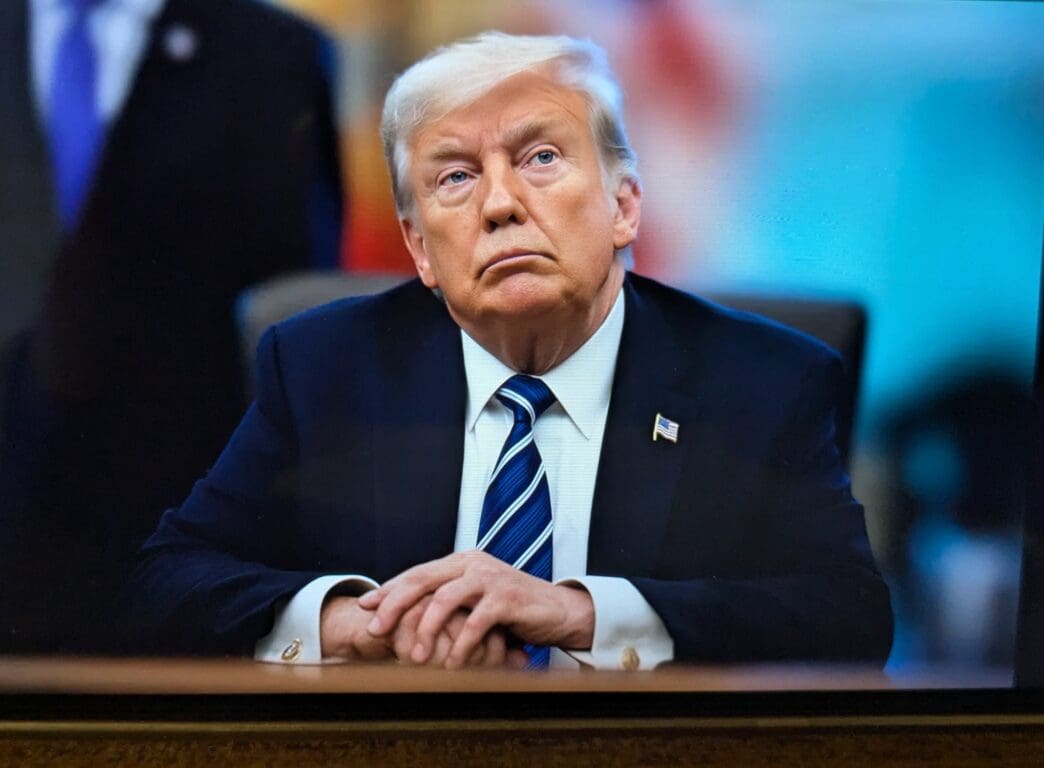Executive Summary
The Story So Far
Why This Matters
Who Thinks What?
In a significant shift in foreign policy, the Trump administration on Wednesday announced “massive sanctions” targeting Russia’s two largest oil producers, Rosneft and Lukoil, along with their subsidiaries. This unexpected move follows months of diplomatic efforts that President Trump deemed unproductive, signaling a tougher stance from Washington aimed at curbing Moscow’s revenue amidst escalating violence in Ukraine.
Policy Reversal Follows Diplomatic Frustration
The sanctions mark a reversal from the administration’s earlier approach, which had focused on incentives and diplomatic engagement, including a major bilateral summit in Alaska. President Donald Trump expressed frustration with Russia’s “uncompromising insistence” on addressing the conflict’s “root causes,” stating he did not want to “waste time” on further summits, though he left the door open for future talks.
Sources indicated that Trump’s patience had been waning, particularly as the Alaska summit failed to de-escalate violence in Ukraine. He had reportedly shifted his position on Ukrainian strikes deep inside Russia, increasing intelligence sharing to help Kyiv target military and energy facilities.
Details of the Sanctions
These are the first direct sanctions imposed by President Trump since he returned to office in January. The measures involve freezing the US assets of Rosneft and Lukoil, and their dozens of subsidiaries, while banning US entities from conducting business with them. Experts note that targeting these two companies, which together account for roughly half of Russian oil exports, represents a substantial escalation compared to previous administrations’ actions.
The Biden administration, in its final package of sanctions, had targeted Russia’s third and fourth-largest oil companies but avoided the biggest producers, reportedly due to concerns about global supply disruptions and rising oil prices. Helima Croft, head of Commodities Strategy at RBC, described Trump’s sanctions as “the most material move to date by the United States to shutter the Russian war ATM.”
Coordinated International Pressure
The US sanctions appear to be coordinated with NATO allies, a practice common under the Biden administration. Just a week prior, on October 15, the United Kingdom expanded its own sanctions to include Rosneft and Lukoil. On the same Wednesday, the European Union unanimously approved its 19th package of sanctions, which features a full transaction ban on Rosneft and targets Litasco, a Lukoil trading unit in the United Arab Emirates.
European Commission President Ursula von der Leyen emphasized the collective effort, stating, “This is a clear signal from both sides of the Atlantic that we will keep up collective pressure on the aggressor.”
Potential Impact on Russia
The immediate economic impact on Russia remains a subject of debate among experts. Maria Shagina, a senior fellow at the London-based International Institute for Strategic Studies (IISS), suggests the move comes at a “vulnerable point” for Moscow, which is already facing reduced energy revenues due to existing Western sanctions and Ukrainian drone attacks. However, Janis Kluge of the German Institute for International and Security Affairs noted that the ruble has seen little effect and the stocks of Lukoil and Rosneft have fallen but “not cratered,” suggesting it is “more of a signal than a huge blow.”
Experts largely anticipate that Russia will seek and find workarounds to maintain the flow of its oil to global markets, particularly to trading partners in India and China. The long-term effectiveness of the sanctions will depend heavily on the Trump administration’s resolve to counter these potential circumventions, according to Richard Bronze of Energy Aspects.
Global Economic Repercussions
A critical factor for both Russia and the global economy is how India will respond to the new US sanctions. Reports indicate that Reliance Industries, India’s largest importer of Russian crude, may reduce or halt imports. India accounts for a significant portion—estimated at 30-40%—of all Russian oil exports, meaning a cessation of these imports would leave China as Russia’s primary major buyer, potentially taking some oil off the market and driving up global prices.
The timing of Trump’s sanctions coincides with a nearly 25 percent drop in US crude oil prices since January, providing the administration more flexibility. However, the challenge for the White House will be to prevent sustained price increases that could inadvertently benefit Moscow. This might involve President Trump exerting pressure on OPEC+ to boost oil production.
Putin’s Response and Future Outlook
Russian President Vladimir Putin offered a somewhat contradictory response, asserting that the sanctions “will not significantly affect our economic well-being” and that Russia would not make decisions “under pressure.”
While the ultimate economic impact is still unfolding, experts like Janis Kluge view the political shift as significant for Moscow. He suggests that the sanctions signal an end to a period where Russia consistently received “another chance” or “another extension to the ultimatum” in its dealings with the United States.








